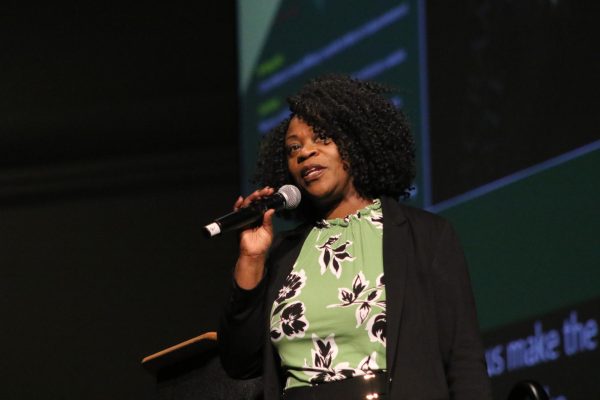Reform bill to help youth
April 13, 2010
Saveel Khan, a 24-year-old senior government major, has been administering physical therapy on his own knee since he lost coverage on his father’s health insurance policy in September.
To avoid the $100-a-session cost of seeing a physical therapist, Khan went online to find stretches and exercises he could do for therapy on his knee, which he injured playing basketball. He said he still feels tension in his knee as he walks up the stairs to his classes because he could not afford the proper therapy.
“Had I had the insurance, I wouldn’t be feeling it now because I would have been able to go through the proper procedures and use the proper equipment,” Khan said. “But I had to makeshift what I could do.”
Khan and an estimated 2 million other dependent young adults will regain coverage from their parents’ insurance policy because of the health care bill passed in late March. The bill, met with fierce opposition from Republicans, mandates that insurers cover dependents on their parents’ policies up until the age of 26.
“It really benefits myself and my family,” Khan said. “I think it will benefit most people. America is on the right track with this.”
Mara Lee, communications director for Rep. Doris Matsui, D-Sacramento, said she has heard from many Sacramento parents and young adults who are excited about the bill.
“It’s just a huge sigh of relief for them,” Lee said. “This is an enormous benefit for young adults.”
Approximately 30 percent of young adults aged 19 to 29 are uninsured, according to the National Conference of State Legislatures. They make up 13 million of the 47 million uninsured Americans today.
Jasmine Pettis, president of the Public Health Club at Sacramento State, said this is because many young adults have a hard time finding jobs that provide benefits.
“I’m about to graduate in May and most of the jobs that I am applying to require five to six years experience minimum,” Pettis said.
Lee said some people have labeled young adults “young invincibles,” because they believe they are too healthy to need insurance.
“(However), the reality is if something were to happen, they can go into bankruptcy or have large unpaid medical bills,” Lee said. “This bill really provides them a level of security and gives them a peace of mind that they deserve.”
During the health care debate, a group called “Young Invincibles” was formed to advocate for the health care reform bill. The group consists of young people who have stories like Khan’s that show how they have fallen through the cracks of the health care system.
“Our campaign will tell the truth about how the current system fails young people, dispel the myth that we don’t care about health care, and add our voices to the millions of Americans demanding change,” according to the group’s website.
Most dependent and full-time college students are granted longer coverage on their parents’ insurance policies. However, like Khan, many have lost their coverage while still in school.
Khan said he was fortunate to have his insurance when he injured his knee. He had knee surgery approximately one month before his 24th birthday, when his insurance expired. The surgery would have cost him $25,000 had he been uninsured.
Thirty-nine states already have laws on the books that extend coverage to dependents; California is not one of them. Only seven states have laws that extend coverage up to or past the age of 26.
The provision will not go into effect until September, six months after the bill’s passage, causing concern to some who need urgent health care.
“There is all this red tape that still needs to go through to get everyone on the same page,” Pettis said.
There are other concerns as well.
The Department of Health and Human Services still needs to define the term “dependent,” as the bill requires. This may mean that uninsured young adults who are not labeled dependent on their parents’ taxes may not become insured on their parents’ policies.
Some insurers also have enrollment periods for new customers later than the September deadline. The bill does not specify whether these insurers must accept adult dependents in September, or if they can wait until their scheduled enrollment periods.
Still, supporters are excited about the plan.
“It sucks that it’s going to take until September, but it could be worse; the bill could not have passed at all,” Pettis said.
Khan said that as soon as he gets back on his parents’ insurance, he will go see a physical therapist for his knee.
“I think that it (the bill) catches America up to the rest of the world where there is universal health care coverage,”Khan said.
Timothy Sandoval can be reached at [email protected].



































































































































